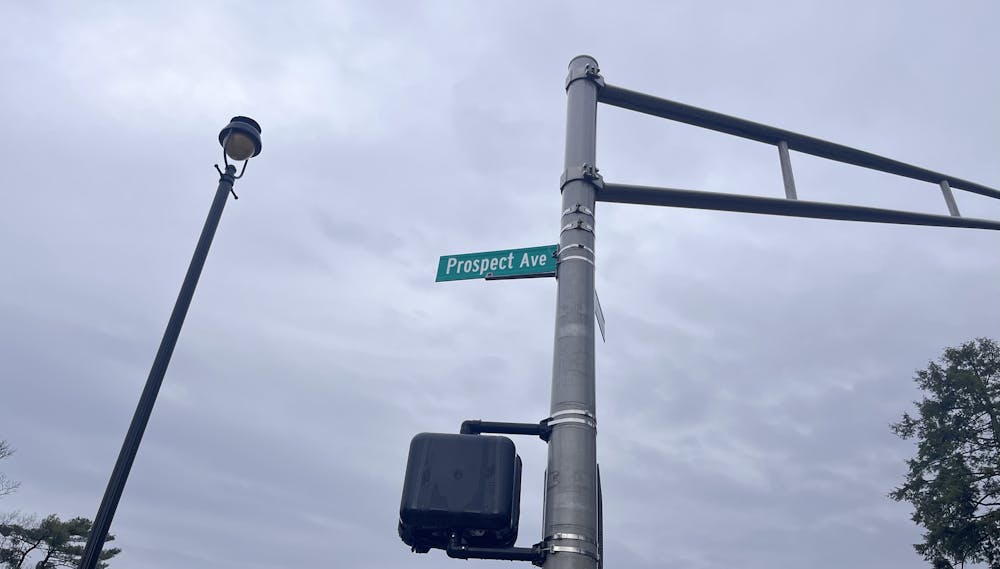The following is a guest contribution and reflects the author’s views alone. For information on how to submit a piece to the Opinion section, click here.
Recently, Princeton University announced a policy that would require members of eating clubs and co-ops living in University housing to buy a second meal plan, costing about $900 a year. I, along with all the other members of the Graduate Interclub Council (GICC), believe that this policy would be disastrous for Princeton’s undergraduate experience.
First, let’s start with the obvious: It’s wrong to ask people to pay for something that they neither need nor want. If students already have a meal plan, and the University is confident that they are not experiencing food insecurity, then there is no need to give students an unnecessary burden. There is little evidence of demand for dining hall meals among eating club members; according to University data provided to the GICC in 2022, students on eating club plans on average used fewer than one of their two free University-sponsored meals per week.
Second, this policy will create financial stress for some students. While the University has graciously offered to cover this meal plan for upperclassmen already receiving financial aid, there will remain students who don’t qualify for aid but still face significant financial burdens. I’ve met a number of these students, whose families often come from high cost-of-living areas or who have significant medical expenses. Many of them take loans or have jobs to make ends meet. This policy incentivizes them to drop out of their eating clubs and choose a cheaper dining hall meal plan, further stratifying the campus into haves and have-nots.
Finally, and perhaps most worrisome, we believe that this policy gives the University a beachhead to incrementally weaken the eating club system over time. This concern is well-founded; over a century ago, then-University President Woodrow Wilson, Class of 1879, sought to restrict all undergraduate lodging and dining to “quads,” a precursor to the modern residential college system. This plan would have crippled the eating clubs, which created enough alumni backlash for the administration to relent and leave the upperclassmen experience as it was.
Despite this setback, the University has made incremental steps towards Wilson’s original vision, recently expanding the number of residential colleges to eight and creating “four-year residential colleges” to house all upperclassmen. At the GICC, we worry that this pattern of steady escalation will continue; the University may require a $900 plan this year, but it could turn into a $2,000 plan or a $5,000 plan, eroding eating clubs and co-ops.
In meetings with University leadership, the GICC has proposed sensible alternatives. The University could simply make this second meal plan optional, and let students decide for themselves if they need it. Alternatively, if the University has conviction that these dining hall meals are important to undergraduate life, then it should continue giving all upperclassmen two free meals at the dining halls. It already proposes to pay for a large portion of these meals via financial aid, so the incremental cost of paying for the remaining students seems small by comparison.
If this policy moves forward as currently written, then the University could artificially reduce demand for eating clubs such that only a fraction of them are financially viable. In this nightmare scenario, only a select few students would be part of the remaining clubs. This would make Princeton look more like Harvard or Yale, whose social scene is defined by a handful of elitist finals clubs and exclusionary secret societies.

And why should Princeton emulate the second-best school of Cambridge, Massachusetts? There’s something magical about our existing formula of having so many student-run dining options on campus that serve a substantial portion of campus. In each eating club and co-op, members slowly adapt the organization to their needs, and the end result is that they become better suited for their constituents than a large, centrally administered dining hall ever could. This cultivates a sense of ownership and a strong feeling of community that their members cannot find elsewhere on campus. Evidence backs this up: In the 2024 dining survey by the Huron Consulting Group, eating club and co-op members reported a higher satisfaction than any other cut of the surveyed population.
For anyone who has been part of an eating club or co-op, it’s obvious why these numbers look the way that they do. Personally, my eating club was the most consequential part of my Princeton experience, and those two-and-a-half years resulted in lifelong friendships that I cannot imagine my adult life without. I know that countless other alumni feel the same way about their own clubs, and by Huron’s own report, this continues to be true for current students. So if it ain’t broke, then why is the University trying to fix it?
We urge the University to stop imposing its vision of an idealized dining experience on students who are already happy. If it keeps going down this path, then its Harvard-like centralization of dining will asphyxiate these great institutions, and we will quickly find that its one-size-fits-all solution is actually one-size-fits-no-one.
If you are an alum, we hope you join us in letting the administration know your displeasure.

Rodrigo C.L. Menezes is a member of the Class of 2013, the chairman of Charter Club’s Board of Governors, and the current vice-chair of the Graduate Interclub Council. He can be reached at rclmenezes[at]gmail.com.
Please send any corrections to corrections[at]dailyprincetonian.com.








